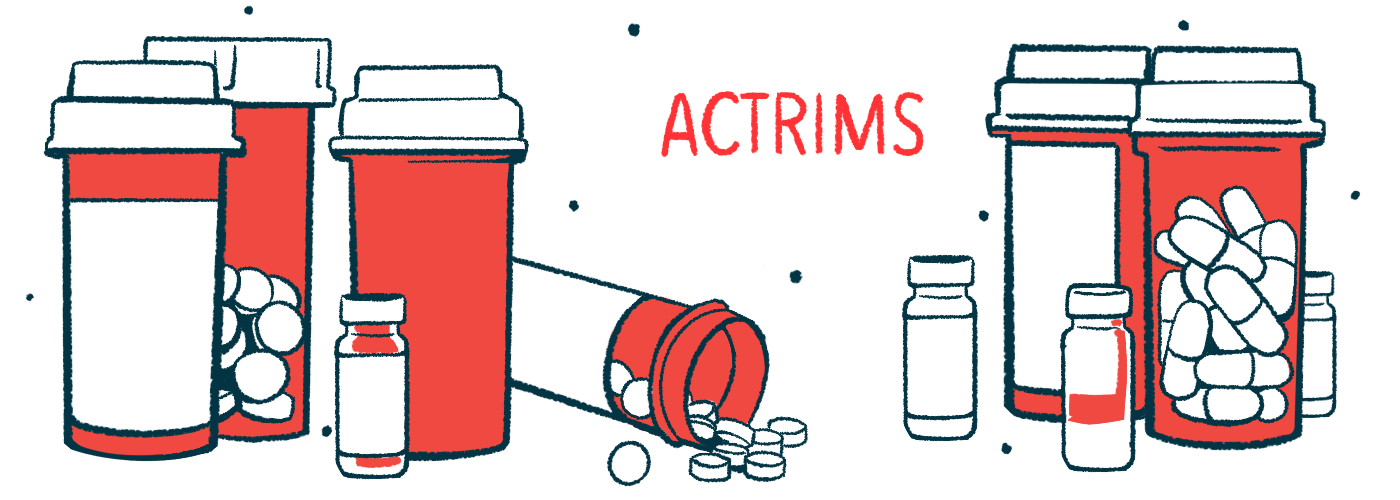ACTRIMS 2024: Most patients relapse-free after 6 years on Zeposia
Open-label DAYBREAK trial enrolled 2,494 people who were in earlier studies
Written by |

About two-thirds of people with relapsing forms of multiple sclerosis (MS) remained completely free from relapses over six years of treatment with Zeposia (ozanimod) in the DAYBREAK clinical trial.
Most also saw no sustained disability progression during that period and the mean number of new or enlarging lesions remained continuously low compared with treatment with Avonex (interferon beta-1a), an older approved therapy.
The trial’s final results were presented at the Americas Committee for Treatment and Research in Multiple Sclerosis (ACTRIMS) Forum 2024, Feb. 29- March 2, in Florida and virtually. The poster was titled, “Long-term safety and efficacy of ozanimod in relapsing multiple sclerosis: final analysis of the DAYBREAK open-label extension study.”
The work was funded by Bristol Myers Squibb, which sells Zeposia. Jonathan Sadeh, MD, Squibb’s senior vice president, said in a company press release the results “underscore a consistent and sustained safety and efficacy profile and add to the body of evidence supporting Zeposia’s role in the treatment armamentarium.”
Zeposia is an oral medication that works to reduce inflammation in the brain and spinal cord. It’s approved in the U.S. for relapsing types of MS. Data from multiple clinical trials in relapsing MS consistently showed it’s effective for preventing MS relapses, with greater potency than Avonex.
What did the DAYBREAK trial show?
The open-label DAYBREAK trial (NCT02576717) enrolled 2,494 people who participated in earlier Zeposia studies. About two-thirds of the participants were female and more than 99% were white. About 90% hailed from Eastern Europe. In DAYBREAK, all were treated with Zeposia at the now-approved dose (0.92 mg/day) for an average of 60.9 months, more than five years.
Throughout the study, the average relapse rate was 0.098 relapses a year, with 69% of patients being free of relapses after five years and 67% of those with available data free after six years.
“These DAYBREAK data continue to validate the role of Zeposia in the long-term management of relapsing forms of multiple sclerosis, with two-thirds of patients relapse-free at six years of treatment,” said Bruce Cree, MD, PhD, study investigator at the University of California San Francisco.
Relapse rates during DAYBREAK were generally comparable among those who’d been on the approved Zeposia dose in earlier studies and those who’d received Avonex or a lower Zeposia dose before entering DAYBREAK.
More than 80%, or about five of every six patients, had no worsening of disability during the study, and safety data from DAYBREAK didn’t reveal any new issues related to Zeposia. The most commonly reported side effects were headache and infections, including the common cold and COVID-19.
“These findings add to our confidence in Zeposia as an important treatment option for people living with the disease, highlighting its efficacy and safety over time,” Cree said.
‘Rebound effect’ and disease activity from stopping Zeposia
About one in five (21.8%) participants who started DAYBREAK left early and discontinued Zeposia. With some MS treatments, stopping therapy can lead to a “rebound effect,” where disease activity suddenly and severely worsens, but there’s not much data on whether this is common with Zeposia.
In a separate analysis at ACTRIMS, researchers analyzed data from these patients, as well as those who completed DAYBREAK, but chose not to continue Zeposia, to determine how stopping treatment affected disease activity.
The poster was titled, “Absence of rebound effect following ozanimod discontinuation among participants in the DAYBREAK open-label extension study.”
The data suggested a rebound effect was uncommon with Zeposia. Of more than 1,600 patients with available data, only 55 (3.3%) had a documented relapse in the months after discontinuing Zeposia. The relapses almost always occurred between one and three months after stopping treatment.
All but one of the documented relapses were judged non-severe, with more than three-quarters (76.4%) of those who relapsed making a full recovery afterward.
Of the 55 who had a relapse, the median score on the Expanded Disability Status Scale (EDSS) worsened by 1 point after discontinuing Zeposia. In other words, most saw some noticeable disability worsening after a relapse, but it wasn’t common for it to progress severely.
“There was no evidence of rebound characterized by severe exacerbation of disease or severe persistent increase in disability after permanent [Zeposia] discontinuation,” said the researchers who noted the data could help patients weigh the possible risks of stopping treatment, for example, when planning for pregnancy.
Note: The Multiple Sclerosis News Today team is providing coverage of the ACTRIMS Forum 2024 Feb. 29-March 2. Go here to see the latest stories from the conference.



